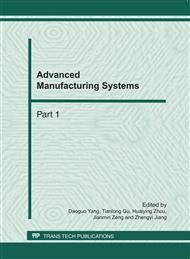p.2820
p.2825
p.2829
p.2833
p.2837
p.2841
p.2846
p.2850
p.2854
Contract Model of Knowledge Trading between Tourism Enterprises
Abstract:
With the development of knowledge-based economy,knowledge is increasingly becoming important resource of enterprises to maintain a competitive advantage and sustainable development. In this paper, we pay more attention to the knowledge trading of tourism enterprises, supposing that knowledge buyer (the tourism enterprise which needs knowledge) prefer to trade knowledge with knowledg seller (the tourism enterprise which owns knowledge) through intermediary (intermediary is often the knowledge-service corporate). Finally, the contract model of knowledge trading is construted and analyzed. It is pointed out that on the condition of contract knowledg etrading, the revenue of knowledge buyer and seller will increase if the knowledg service corporate pay more attention to observing the uncertainty factors, and then the revenue of knowledg service corporate is closely related with the factor β*.
Info:
Periodical:
Pages:
2837-2840
Citation:
Online since:
February 2011
Authors:
Price:
Сopyright:
© 2011 Trans Tech Publications Ltd. All Rights Reserved
Share:
Citation:


